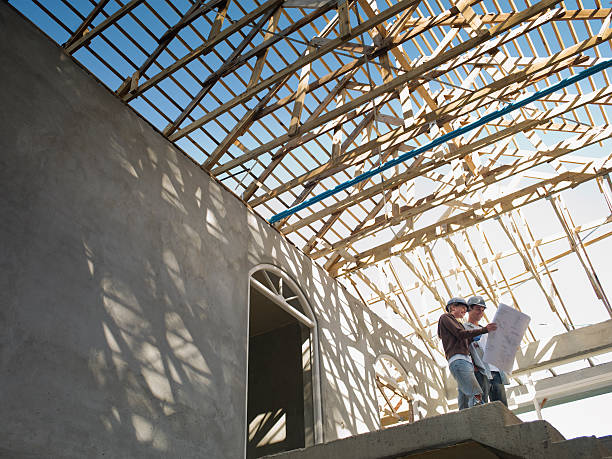Finding the best construction companies: Choosing the Right One
Construction projects come with high expectations and high stakes. Whether you're planning a renovation, building from the ground up, or managing a commercial development, finding the right contractor is critical. Here's how to avoid common mistakes and choose a team that delivers.

What Makes a Construction Company Trustworthy
Trustworthiness in construction companies stems from a combination of experience, transparency, and proven track records. A reliable contractor maintains clear communication throughout the project lifecycle, provides detailed written estimates, and demonstrates expertise in their specific field. Look for companies with established local presence, as they have reputation stakes in the community and are more likely to stand behind their work. Quality contractors also maintain strong relationships with suppliers, subcontractors, and local building departments, which can streamline your project timeline.
Professional credentials and industry certifications also indicate trustworthiness. Reputable construction companies often hold memberships in professional associations like the Associated General Contractors of America or local contractor associations. These organizations typically require members to meet specific standards and adhere to ethical business practices. Additionally, trustworthy contractors provide references from recent projects and are transparent about their processes, materials, and potential challenges.
How to Verify Contractor Licenses and Insurance Before Hiring
Verifying licenses and insurance represents a crucial step in contractor selection that protects both you and your investment. Start by checking your state’s contractor licensing board website, where you can search for active licenses and view any complaints or disciplinary actions. Most states require contractors to maintain current licenses for specific trade categories, and working with unlicensed contractors can void warranties and create liability issues.
Insurance verification requires requesting certificates of insurance directly from the contractor’s insurance provider. Essential coverage includes general liability insurance, worker’s compensation, and often professional liability insurance. The insurance certificates should list you as an additional insured party and remain current throughout the project duration. Some contractors may also carry builder’s risk insurance, which covers materials and work in progress against damage or theft.
What Are the Differences Between Residential and Commercial Contractors
Residential and commercial contractors operate in distinctly different environments with varying requirements, expertise, and regulatory frameworks. Residential contractors typically focus on single-family homes, apartments, and small-scale renovations. Their projects generally involve shorter timelines, smaller crews, and more direct homeowner interaction. Residential work often requires expertise in aesthetic considerations, living space functionality, and local residential building codes.
Commercial contractors handle office buildings, retail spaces, industrial facilities, and large-scale developments. These projects typically involve more complex engineering requirements, specialized equipment, and coordination with multiple stakeholders including architects, engineers, and property managers. Commercial contractors must understand commercial building codes, accessibility requirements, and often work with union labor. The scale and complexity of commercial projects usually demand more sophisticated project management systems and financial resources.
How to Request and Compare Estimates from Local Construction Firms
Requesting comprehensive estimates requires providing detailed project specifications to multiple contractors for accurate comparisons. Create a detailed scope of work document that includes materials preferences, timeline expectations, and specific requirements. Provide this same information to at least three local construction firms to ensure consistent bidding parameters. Quality estimates should include itemized costs for materials, labor, permits, and contingencies rather than single lump-sum figures.
When comparing estimates, look beyond the bottom line to evaluate what each proposal includes. Some contractors may provide lower initial bids but exclude important elements like cleanup, permit fees, or change order procedures. Pay attention to material specifications, timeline commitments, and warranty terms. Extremely low bids often indicate corners will be cut, while unusually high estimates may suggest inefficiency or premium positioning.
| Construction Service Type | Typical Cost Range | Key Considerations |
|---|---|---|
| Residential Renovation | $15,000 - $150,000 | Material quality, permits, timeline |
| New Home Construction | $150,000 - $500,000+ | Site preparation, custom features, location |
| Commercial Build-Out | $50 - $200 per sq ft | Code compliance, accessibility, systems |
| Kitchen Remodeling | $25,000 - $75,000 | Appliances, cabinetry, plumbing updates |
| Bathroom Renovation | $10,000 - $35,000 | Fixtures, waterproofing, ventilation |
Prices, rates, or cost estimates mentioned in this article are based on the latest available information but may change over time. Independent research is advised before making financial decisions.
What Legal Protections Should Be in Place Before Starting a Project
Establishing proper legal protections before construction begins safeguards your interests and clarifies expectations for all parties involved. A comprehensive written contract should detail project scope, materials specifications, timeline, payment schedule, and change order procedures. Include specific language about permits, inspections, cleanup responsibilities, and warranty terms. The contract should also address potential issues like weather delays, material availability, or unforeseen complications.
Lien waivers represent another critical protection, ensuring that subcontractors and suppliers cannot place liens on your property after receiving payment. Request lien waivers from all parties involved in the project as payments are made. Additionally, consider establishing a payment schedule that retains a percentage of each payment until project completion and any punch list items are resolved.
Understanding your state’s lien laws, permit requirements, and contractor regulations helps protect your investment. Some states provide additional protections through contractor recovery funds or bonding requirements. Consider consulting with a construction attorney for larger projects or when dealing with complex contracts.
Choosing the right construction company requires careful evaluation of credentials, experience, and communication skills. By verifying licenses and insurance, understanding the differences between residential and commercial contractors, properly requesting estimates, and establishing legal protections, you can significantly improve your chances of project success. Remember that the lowest bid isn’t always the best value, and investing time in thorough contractor selection pays dividends in project quality, timeline adherence, and overall satisfaction with the final results.




